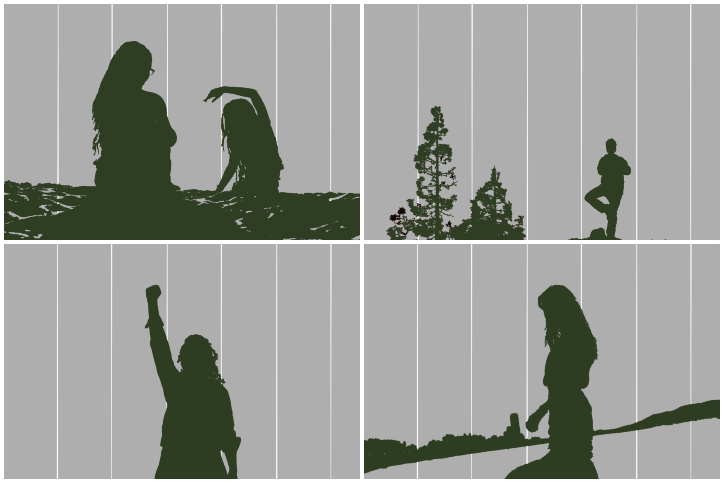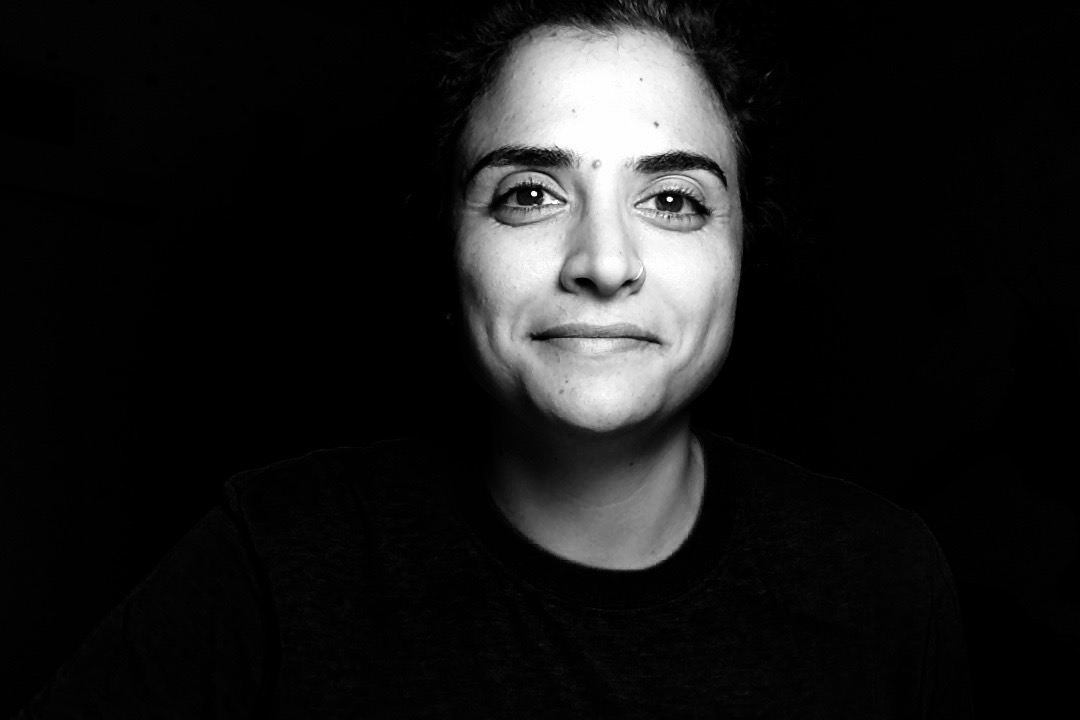A podcast highlighting stories of Christian Palestinian women aims to inform new audiences on how occupation impacts their personal lives.

A mother in the West Bank struggling to explain to her child, on reaching a checkpoint, that no, they have not yet arrived at the zoo. A grandmother in Beit Sahour who wishes to join her family in the diaspora, but lives alone in Palestine, to provide care for her elderly father. A young woman from Bethlehem who dreams of becoming a director in Egypt but is held back by societal expectations and patriarchal norms.
These are a few of several women’s stories featured on “Women Behind the Wall,” a new podcast which aims to “amplify minority perspectives in the Israel-Palestine conflict,” according to the project founder, Shadia Qubti. The show centers around the stories of Christian Palestinian women – a double minority group in terms of gender and religion – in an attempt to expose how the occupation impacts their lives.
According to Qubti, Palestinian society is very diverse and rich, but “in the media, we do not reach the average peoples’ stories.” She believes there is a humanizing power to storytelling, and “these moments, hopefully, will make the listener intrigued to understand more.”
The only Palestinian on a team of three producers, Qubti, who is also Christian, served as the bridge between the speakers and the listeners. “I acted as a filter,” she said, gaining the women’s trust on the one hand, while also protecting them and being attentive to their hesitations. As any other minority group, Christian Palestinians struggle with “the balance between being who you are, but also respecting the environment around you,” without perpetuating stereotypes, Qubti added.
Qubti and the team realized that putting the spotlight on Palestinian Christians is likely to attract a Christian Western audience. She calls it an “alternative entry point” to the occupation; a “less intimidating” way for “people to be aware of what is happening here, and the toll it takes on everyone.” Especially since over the past decade, she added, religion has become an element that exacerbates the conflict.

Evangelical Christians are the largest pro-Israel demographic group in the United States. According to a poll conducted by Pew Research Center in 2013, twice as many white evangelicals (82 percent) as Jews (40 percent) believe God gave Israel to the Jewish people. A more recent poll published by the Brookings Institution found that 53 percent of American evangelicals supported Trump’s declaration of Jerusalem as Israel’s capital, and the decision to move the U.S. embassy there.
“Denying my rights, okay, fine, I’m fine with that. But don’t use my bible for this. Don’t use my God, don’t use my lord, don’t use the most peaceful and amazing man on Earth to deny my existence, to deny my rights, to deny who I am,” Amira, the subject of the third episode who works at an evangelical Christian organization in Bethlehem, says.
Amira’s sentiments resonate with Qubti: “I think, especially given recent racism in the Trump administration, evangelical Christians have been more in the media, and are getting more and more attention, and we forget that this is only one voice among evangelical Christians. Having evangelical Christian Palestinians speak up and say that this is their perspective, and this is where they are coming from, for me that is quite powerful.”
The focus on the Christian Palestinian community has allowed the team to dive deeper into “the kinds of perspectives that, even we, as Christians, do not know enough about,” said Qubti. The 10-episode show covers a spectrum of Christian voices, including Greek Orthodox, Catholic, Armenian, evangelical, and even a Muslim convert to Christianity.
Centering on Christian Palestinian women was also a decision based on convenience, according to Qubti. The Jerusalem-based production team has worked with predominantly Christian communities, and given the level of intimacy that the podcast required, it seemed only natural to go with a group they were already familiar with. Some of the women were friends, or friends of friends, who were willing to openly talk about themselves, and were comfortable communicating their experiences in English.
With full-time jobs, the women pursued the podcast as a side project, dividing the work equally among them. “We were very determined, and I think we saw the vision, we saw that it could be a great resource, so we really pushed ourselves to get it done.”
The team kicked off the project without any experience in podcast development. “We did not necessarily know what we were getting ourselves into,” said Qubti, in a tone that one can carry once an endeavor is complete, indicating part pride, part relief. They did some research, but “we didn’t have a budget to buy fancy equipment, and the recording was done usually at the interviewees house,” she explained.
The podcast officially launched in early June. Since then, the team has received reactions mostly from Western listeners. Qubti believes this is because podcasts are booming in Europe and the U.S., but are not a popular medium yet in Israel-Palestine. Each episode is paired with a cause the speaker is interested in promoting, and listeners can find those on the podcast website, which also offers a glossary of key terms, resources, and recommendations.
“The women we interviewed are each involved in organizations providing crucial support to particular sectors of Palestinian society,” said Qubti, “and having people follow up by supporting the causes they care about is very encouraging. We hope that the issues they highlight, which tend to be lesser known organizations and initiatives, will benefit as a result.”

